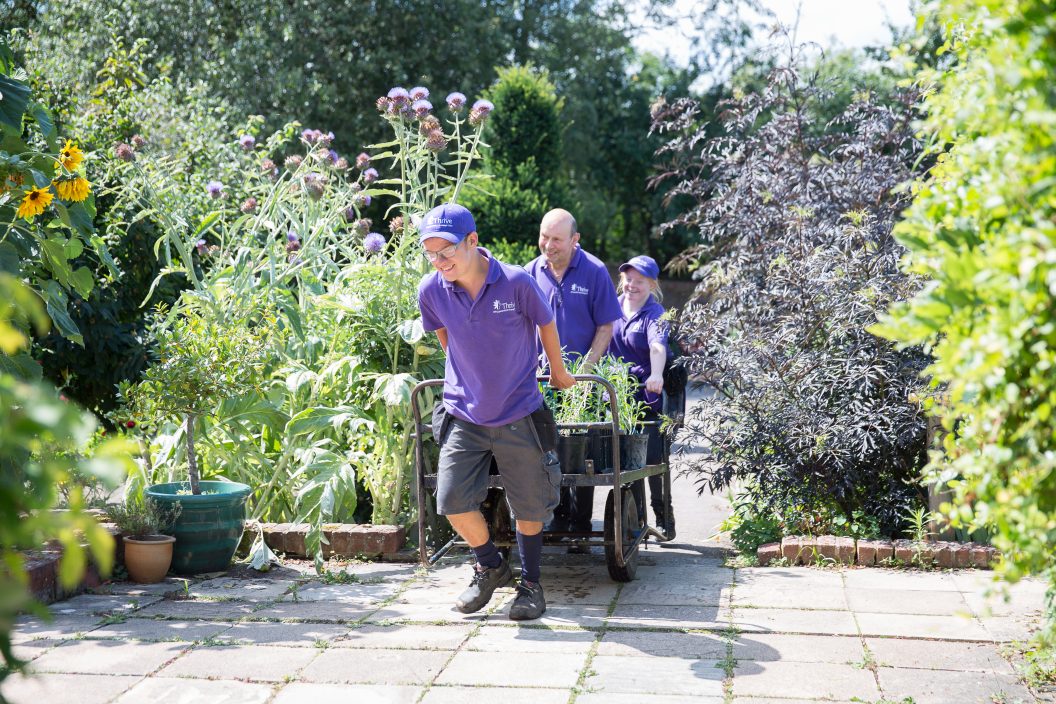
Join us for a global celebration of ‘World Therapeutic Horticulture Day’ on the 18th of May. The day is dedicated to highlighting the numerous therapeutic benefits of horticulture and gardening, such as improved mental and physical health, as well as the positive impact it can have on the environment.
Therapeutic horticulture is a practice that uses plants, gardens, and nature to help people improve their physical and mental health.
We have been using Social and Therapeutic Horticulture since 1979 and over this time we have seen for ourselves the meaningful and positive impact it has on so many people's physical and mental health. It is deeply ingrained in all of us to thrive in a natural environment. Providing opportunities for people to garden and connect with nature, whilst also connecting with other people is something we are proud to do.

There are many reasons to celebrate therapeutic horticulture. First and foremost, it has been shown to be an effective therapy for a wide range of physical and mental health conditions, including anxiety, depression, and chronic pain. It can also help improve socialisation skills, reduce stress and anxiety, and increase self-esteem.
The aims of World Therapeutic Horticulture Day are:
Therapeutic horticulture is a sustainable approach to healthcare that has a positive impact on the environment. It promotes the responsible use of natural resources and encourages the cultivation of plants that provide various benefits, such as cleaner air and water.
Additionally, therapeutic horticulture is practiced in a variety of settings, including hospitals, rehabilitation centres, schools, and community gardens. This makes it a versatile therapy that can be tailored to meet the needs of a wide range of individuals.
Therapeutic horticulture practitioners
The role and value of therapeutic horticulture practitioners cannot be underestimated – they are vital allies to health and care professionals. A therapeutic horticulture practitioner uses gardening and nature-based activities as a therapeutic tool to promote physical, emotional, and mental well-being. Their role is to design, plan, and implement horticulture-based interventions that aim to improve the health and quality of life of individuals and groups.
We want to celebrate and promote the brilliant work that these practitioners do and the positive impact it has on both individuals and the environment.
